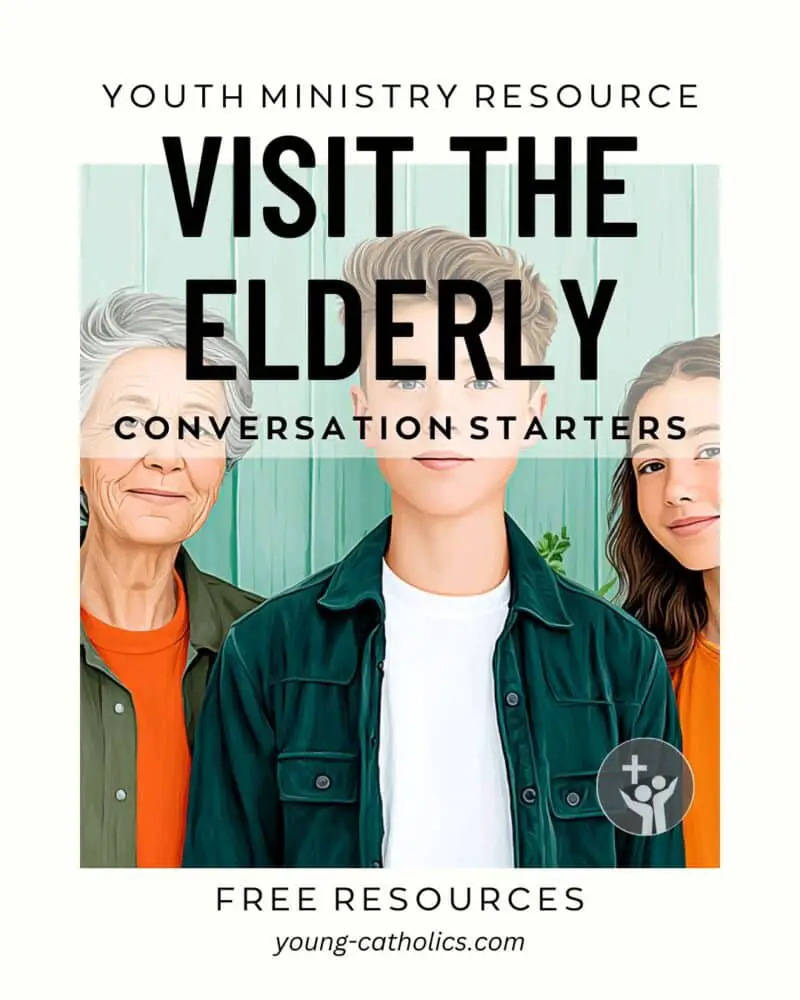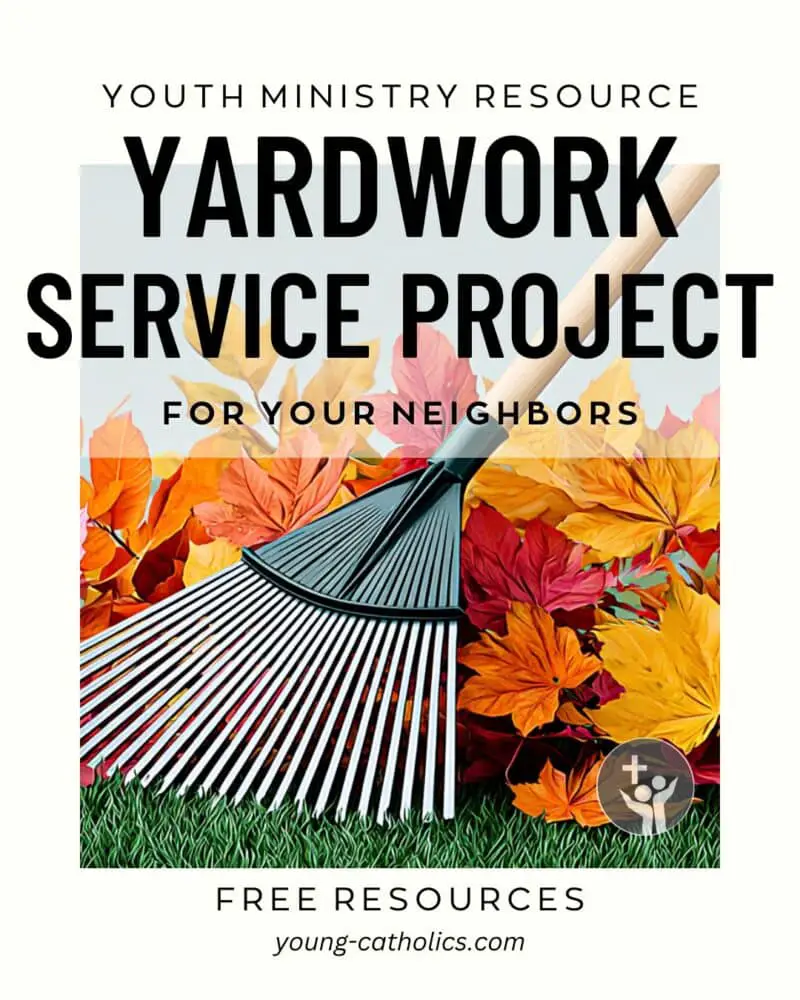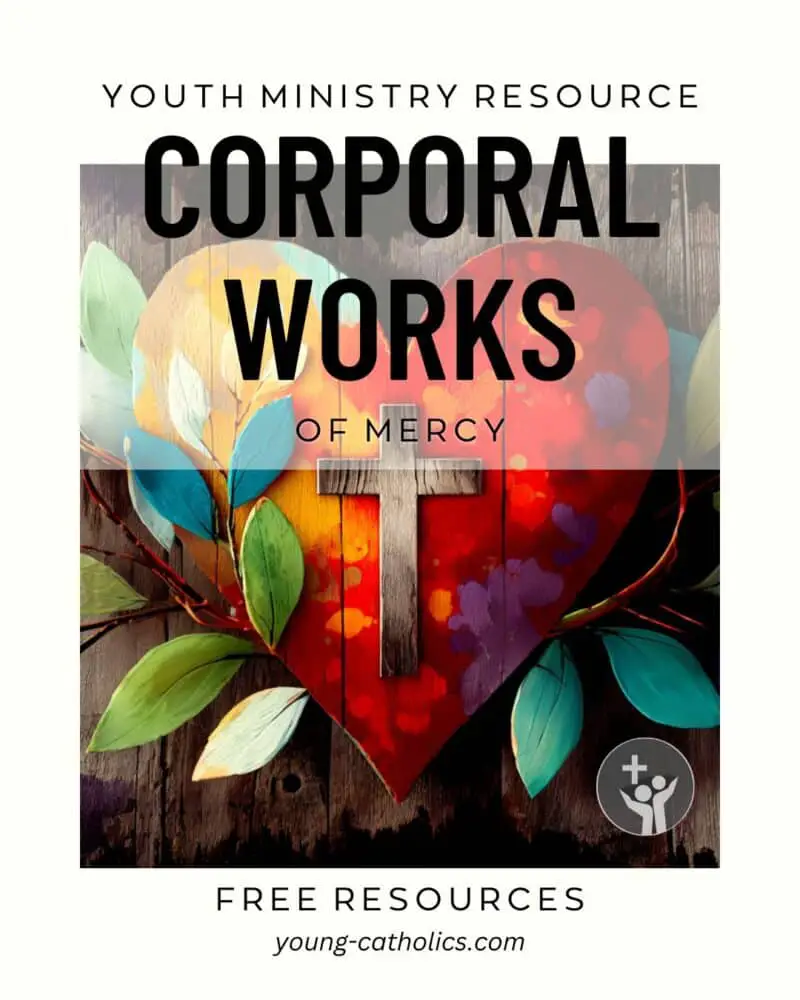Tips for When You Visit the Elderly

Visiting the elderly is important. It is good for both the visitor and the person being visited. Older people often feel lonely. Many of them do not have family nearby. They are happy when someone takes time to visit. It shows love and respect. It also makes them feel less alone.
Young people can learn a lot from older people. The elderly have many stories to tell. They have lived through many experiences. They often share wisdom from their faith and life. Hearing these stories can help young people understand the past. It can also help them appreciate what they have today.
Building relationships with the elderly connects different generations. It helps young people respect and care for others, no matter their age. It can also help children and teens see aging in a positive way. It teaches them that every stage of life has value. And for the elderly, knowing young people care for them can bring joy and hope.
Visits can feel uncomfortable at first. It may seem like there is not much to talk about. But there are simple ways to make the visit more enjoyable. Bringing photos, playing a game, or asking a few questions can start a good conversation. Even small efforts can make a big difference. The more often you visit, the easier it becomes. Soon, you may find that these visits are something you look forward to.
Getting Ready to Visit the Elderly
It is good to plan ahead before visiting an elderly person. Bringing a small gift can make the visit special. Cookies, flowers, or a card are simple but thoughtful. You could also bring a board game, a book, or some photos. These can help start conversations. Small gifts show that you care. They also help break the ice.
Before the visit, remind yourself to be open and respectful. Older people may move slower or repeat themselves. Be patient and let them take their time. Listen carefully to what they say. Even if their stories seem old, they are new to you. Show respect by looking them in the eye and not interrupting.
Families can pray together before the visit. A short prayer can make a big difference. Ask God to bless the time together. Pray for the grace to be kind and loving. This helps children and teens prepare their hearts. It reminds everyone that the visit is about sharing God’s love.
Also, try to be flexible. Sometimes, plans change once you arrive. The elderly person may be tired or have a hard time focusing. Be ready to adjust your plans. Remember, the most important thing is to simply be present. Your visit itself is a gift.
Easy Ways to Break the Ice
When you arrive, start with a smile. Smiling makes people feel welcome and safe. Say hello and introduce yourself, even if they know you. It helps set a friendly tone. Look them in the eye. It shows you are ready to listen and care about being there.
Start with simple conversation. You can ask about decorations in the room or photos on the wall. You might say, “That’s a nice photo. Who is it?” or “I like your flowers. Did someone bring them for you?” These simple comments can lead to longer stories and memories. If you share a hobby or interest, mention it. It can help you both feel more connected.
Pay attention to how they respond. Some elderly people may speak softly or slowly. Be patient and adjust your speaking speed if needed. If they seem tired, let them rest or change the topic. If they are excited about a story, encourage them to keep sharing. Use simple questions like, “What happened next?” or “How did you feel?”
Sometimes, there might be pauses in the conversation. That’s okay. Silence is not always bad. Just sitting together quietly can be comforting. It shows that you are present and not in a hurry.
Fun Activities for Your Visit
There are many things you can do together during a visit. Board games are a great choice. Simple games like checkers, Rummy Cube, or cards are easy and fun. You can also work on a puzzle together. These activities help you relax and enjoy each other’s company. They also give you time to talk as you play.
Looking through photo albums is another good activity. Ask about the people or places in the photos. This often brings back happy memories for the elderly person. You can also share photos from your phone. Show pictures of your family, pets, or recent events. This makes them feel included in your life.
Sometimes, just sitting together is enough. You don’t always need to talk or do something. Sitting quietly in a garden or by a window can be peaceful. Companionship itself is a gift. Your presence shows you care, even if no words are spoken.
Reading aloud can also be meaningful. You can read from the Bible, a book of saints, or a favorite poem. These readings can bring comfort and joy. The sound of a familiar passage can be uplifting. It can also lead to deeper conversations about faith and life.
Great Questions to Start a Conversation
Asking good questions can lead to meaningful talks. Here are some questions that work well:
- What was your first home like?
- What were your favorite games as a child?
- How did you meet your spouse?
- What was your favorite job or role in life?
- Who were your heroes when you were young?
- What are your happiest memories from church or faith events?
These questions can bring up happy memories. They give the elderly person a chance to share stories from their life. It also helps you learn more about history from someone who lived it.
Listen actively when they answer. Look at them, nod, and smile. This shows that you are interested. Ask follow-up questions like, “What happened next?” or “How did you feel?” Be patient. Some stories might be long or slow, but they are worth hearing.
Be sensitive as you ask questions. Some topics may bring up sad memories, like losing a loved one or a difficult time in life. If they seem upset, gently change the topic. It is okay if some questions do not lead to long talks. What matters is that you show you care.
How to Visit When Memory Is Fading
When someone has memory loss, it helps to speak simply. Use short sentences and clear words. Speak slowly and gently. If they do not understand, try saying it again in a different way. Repeating things is okay. It can help them follow the conversation better.
Be patient. It can be hard when someone forgets names or stories. But try to stay warm and kind. Smile often and make eye contact. Even if they do not remember details, they can still feel your kindness. Your warmth can bring comfort, even when words fail.
Focus on the moment. Sometimes, brief connections are the best you can hope for. A smile, a touch, or even sharing a laugh matters. These small moments of joy are a blessing, even if they do not last long.
Remember that your presence is more important than words. Just sitting quietly with them can bring peace. You do not need to fill every silence with talk. Being there is enough. It shows love and care. It makes a difference.
Ending the Visit with Kindness
When it is time to leave, say goodbye with care. Thank the person for spending time with you. You can say, “I really enjoyed our time together,” or “Thank you for sharing your stories.” Simple words of gratitude mean a lot. They show that you valued the visit.
If the elderly person is open to it, offer a short prayer before you go. You can pray for their health, joy, and peace. A prayer is a gentle way to end the visit with God’s blessing. It can also bring comfort to both of you.
Try to make a plan for the next visit. You can say, “I’ll try to visit again next week,” or “Maybe we can play cards next time.” Making a plan gives them something to look forward to. Even if the next visit is not soon, the promise of it brings hope.
After leaving, encourage children and teens to reflect on the visit. Ask them what they learned or how they felt. This helps them understand the value of visiting. It also helps them grow in kindness and patience. Even if the visit was tough, ending it with a positive thought makes it worthwhile.
Resources

Yard Work for the Elderly
Yardwork for the elderly is another great service project for kids and teens. It is a type of almsgiving that helps those in need. Raking leaves, picking up branches, or doing spring cleanup makes a big difference. You can work with a senior ministry to find neighbors who need help.
A “yard blitz” with a group is fun—you can clean up several yards in one day. Don’t forget to spend time talking with the elderly, too. They enjoy the company as much as the help. This teaches youth that we need each other for both work and friendship.

Corporal Works of Mercy
Visiting an elderly relative or friend is part of the Corporal Works of Mercy, which come from Jesus’ teachings. In the Gospel of Matthew, Jesus tells us to care for those in need: feed the hungry, welcome strangers, clothe the naked, and visit the sick (Matthew 25:35-36).
By visiting the elderly, we live out Jesus’ command to show mercy. Christians have followed this call throughout history. It’s a way to bring God’s love to others. Every visit reflects Christ’s love and care for all people, especially the lonely and weak.
Social Media Graphics and Bulletin Artwork
Bridging Generations with Love

Highlight the beauty of connecting young and old with this warm, inviting image. Perfect for bulletins, newsletters, or parish programs that encourage visiting the elderly, it captures the joy and respect shared between generations.
Use it to inspire acts of kindness, share intergenerational ministry opportunities, or promote service projects. This image is now available for download to enrich your Catholic community materials.
Paid subscribers may download a large copy this digital artwork without watermarks, suitable for use in bulletins, social media, newsletters, etc., free of charge by clicking here. You must be logged in as a paid subscriber to access the file.
Only current paid subscribers have the rights to use the artwork.
Questions and Answers about Visiting the Elderly
What should I bring when I visit the elderly?
Bring simple things like cookies, flowers, a card, or a photo album. You could also bring a board game, a book, or a small craft project. The gift doesn’t need to be big—just thoughtful.
What should I talk about?
Start with easy topics like family, hobbies, or memories. Ask about their childhood, favorite games, or work stories. If you’re not sure what to say, ask about photos in the room. Simple questions are best.
What if the elderly person has memory problems?
Be patient and use simple words. Speak slowly and repeat things if needed. It is okay if they forget things. Just be kind and stay positive. Sometimes, a warm smile is enough.
How long should I stay?
Visits can be short, about 30 minutes to an hour. Pay attention to the person’s energy. If they seem tired, it is okay to leave sooner. The important thing is that you came.
What if I feel awkward during the visit with the elderly?
That’s normal, especially at first. Just be friendly and patient. Try to focus on making the elderly person feel comfortable. As you visit more often, it will get easier.
What if there is a long silence?
Silences are okay. You don’t need to fill every moment with words. Just being there is enough. You can sit quietly, look at photos together, or simply hold their hand.
How can I end the visit nicely?
Thank the person for their time. Offer a short prayer if they’d like that. You can also make a plan for the next visit. A warm goodbye helps end the visit on a positive note.
Treasures of Wisdom and Love
Visiting the elderly brings blessings for everyone. It helps families grow closer and teaches younger people about different stages of life. The elderly have many stories and lessons to share. They also appreciate feeling loved and valued. Visits can be as simple as sharing a conversation, a game, or a moment of prayer. Each visit is a chance to show God’s love in a real way.
Even brief visits make a difference. They show kindness and respect. They help children and teens learn to care for others, no matter their age. As you visit more, the bond grows stronger. You learn to appreciate the wisdom of those who have lived long lives.
Acts of love, big or small, matter greatly to God. Whether it is a smile, a kind word, or a simple prayer, each act has value. God sees our efforts and blesses them. Keep visiting and caring for the elderly. You may find that these visits bring you joy, too.
Your Turn
Visiting the elderly is a small act that brings great joy. Take time this week to visit a grandparent, neighbor, or someone at a nursing home. Share a story, listen to theirs, or just sit together quietly. Every visit shows God’s love. It also teaches us the beauty of each stage of life.
Share your experience in the comments below. What did you learn from your visit? We would love to hear your stories!



Leave a Reply